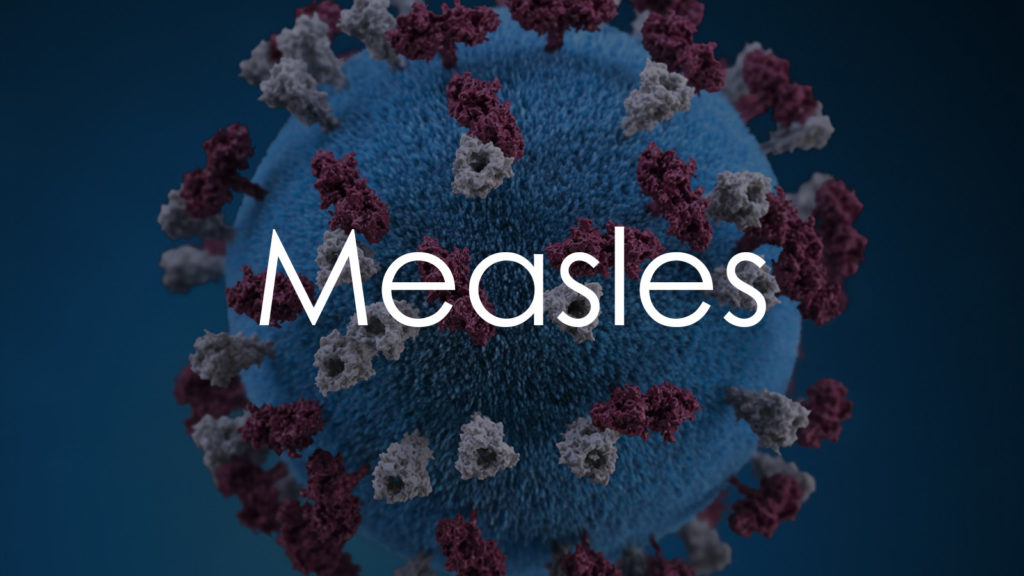Complications of measles can be severe and life-threatening, especially in certain populations such as young children, immunocompromised individuals, and those who are malnourished. Understanding these complications is crucial for early detection, prevention, and effective management.

Respiratory Complications
Pneumonia
Primary Measles Pneumonia
Primary measles pneumonia occurs when the measles virus directly infects the lung tissue. This is a serious complication that can lead to severe respiratory distress.
Secondary Bacterial Pneumonia
Secondary bacterial pneumonia can develop following a measles infection, as the virus weakens the immune system and makes the lungs more susceptible to bacterial infections. Symptoms include high fever, cough with sputum, chest pain, and difficulty breathing.
Treatment and Management
Treatment involves antibiotics for bacterial infections, supportive care such as oxygen therapy, and close monitoring in severe cases. Early medical intervention is crucial to prevent complications.
Bronchitis
Acute Bronchitis
Acute bronchitis is an inflammation of the bronchial tubes, often developing as a complication of measles. Symptoms include persistent cough, mucus production, and chest discomfort.
Treatment and Management
Management includes rest, hydration, and symptomatic relief through medications that ease coughing and discomfort. Severe cases may require medical supervision and additional treatments.
Neurological Complications
Encephalitis
Acute Encephalitis
Acute encephalitis, or inflammation of the brain, is a rare but serious complication of measles. Symptoms can include high fever, severe headache, confusion, seizures, and coma.
Subacute Sclerosing Panencephalitis (SSPE)
SSPE is a delayed and often fatal complication that can occur years after a measles infection. It is characterized by progressive neurological deterioration, including behavioral changes, intellectual decline, and motor dysfunction.
Treatment and Management
Immediate medical attention is required for encephalitis. Treatment includes supportive care, such as intravenous fluids and medications to reduce brain inflammation. SSPE has a poor prognosis, and management focuses on supportive care to improve quality of life.
Ear Complications
Otitis Media
Middle Ear Infection
Otitis media, or middle ear infection, is a common complication of measles, particularly in young children. Symptoms include ear pain, fluid discharge, and temporary hearing loss.
Treatment and Management
Treatment involves antibiotics if a bacterial infection is present, pain relievers, and sometimes drainage of fluid from the ear. Early intervention can prevent permanent hearing damage.
Eye Complications
Conjunctivitis
Inflammation of the Conjunctiva
Conjunctivitis, or pink eye, is a common complication of measles. It causes red, watery eyes, discomfort, and light sensitivity.
Keratitis
Keratitis, an inflammation of the cornea, can occur in severe cases, potentially leading to corneal ulcers and vision impairment.
Treatment and Management
Management includes keeping the eyes clean, avoiding irritants, and using medications to reduce inflammation and prevent secondary infections. Severe cases of keratitis may require specialized eye care.
Gastrointestinal Complications
Diarrhea
Frequency and Severity
Diarrhea can occur as a complication of measles, particularly in young children. It varies in frequency and severity and can lead to dehydration and malnutrition.
Treatment and Management
Treatment includes maintaining hydration with oral rehydration solutions, ensuring proper nutrition, and monitoring for signs of severe dehydration. Severe cases may require intravenous fluids.
Cardiovascular Complications
Myocarditis
Inflammation of the Heart Muscle
Myocarditis, or inflammation of the heart muscle, is a rare but serious complication of measles. Symptoms include chest pain, shortness of breath, fatigue, and arrhythmias.
Treatment and Management
Treatment involves hospitalization, supportive care, anti-inflammatory medications, and close cardiac monitoring. Severe cases may require more intensive cardiac care.
Immune System Complications
Immunosuppression
Temporary Immunosuppression
Measles can cause temporary immunosuppression, making individuals more susceptible to other infections such as bacterial pneumonia and tuberculosis.
Increased Susceptibility
The weakened immune system can lead to a higher risk of secondary infections and complications, requiring vigilant monitoring and preventive measures.
Treatment and Management
Supportive care and preventive measures, such as vaccinations and prophylactic antibiotics, can help reduce the risk of secondary infections. Close monitoring by healthcare providers is essential.
Hematological Complications
Thrombocytopenia
Low Platelet Count
Thrombocytopenia, or a low platelet count, can occur as a complication of measles. This can lead to increased bleeding and bruising, including nosebleeds and petechiae (small red or purple spots on the skin).
Treatment and Management
Treatment involves monitoring platelet levels, managing symptoms, and sometimes administering medications to increase platelet production. Severe cases may require platelet transfusions.
Complications in Pregnant Women
Risk of Miscarriage and Premature Birth
Impact on Pregnancy
Measles infection during pregnancy can increase the risk of miscarriage, premature birth, and low birth weight. Pregnant women are also at higher risk of severe measles complications.
Treatment and Management
Pregnant women with measles require close medical supervision, supportive care, and preventive measures to reduce the risk of complications for both the mother and the baby.
Long-Term Complications
Persistent Measles
Chronic Infection
In rare cases, the measles virus can persist in the body, leading to chronic infection and long-term health issues.
Impact on Health
Persistent measles can cause ongoing immune system problems, increasing susceptibility to other infections and diseases.
Treatment and Management
Management involves regular medical follow-up, supportive care, and treatment of any secondary infections or complications.
Conclusion
Complications of measles can be severe and affect various organs and systems in the body. Early recognition and prompt medical treatment are crucial for managing these complications effectively. Vaccination remains the most effective way to prevent measles and its associated complications. By understanding the potential complications, individuals can take proactive steps to seek medical care and reduce the risk of severe outcomes.